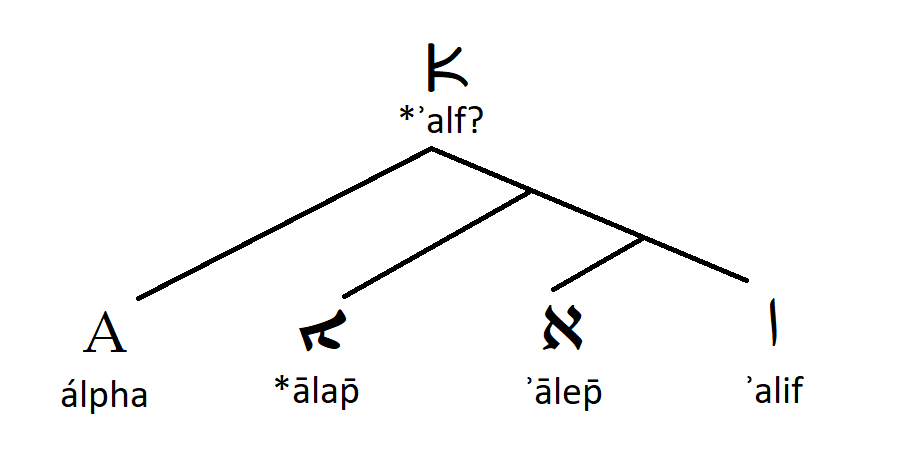Yesterday I got to finish this semester's #Biblical #Hebrew teaching with a class on pausal forms. Heard from some colleagues that they found them a bit intimidating but the students got the hang of them. So I thought I'd share the three main rules I taught them 👇 1/11
First: what are pausal forms? Like in some other languages, many BH words have a separate form when a pause follows (or would in natural speech). For the first two rules, this can be the end of a sentence or a sentence-internal pause, like a comma in English. 2/11
RULE NUMBER ONE
In context (= when no pause follows), the stress shifts from an open syllable to a following word-final vowel and the vowel that used to be stressed is reduced, like:
*qāṭálū > קָֽטְל֫וּ
*yaqṭúlū > יִקְטְל֫וּ
*ʾánī > אֲנִ֫י
*béki > בְּכִ֫י
3/11
In context (= when no pause follows), the stress shifts from an open syllable to a following word-final vowel and the vowel that used to be stressed is reduced, like:
*qāṭálū > קָֽטְל֫וּ
*yaqṭúlū > יִקְטְל֫וּ
*ʾánī > אֲנִ֫י
*béki > בְּכִ֫י
3/11
In pause, the stressed vowel is lengthened and retains the stress. So it looks like the stress shifts back compared to the context form (although it always used to be there):
קָטָ֑לוּ
יִקְטֹ֑לוּ
אָ֑נִי
בֶּ֑כִי
4/11
קָטָ֑לוּ
יִקְטֹ֑לוּ
אָ֑נִי
בֶּ֑כִי
4/11
Also note the suffix 'you(r) (m.sg.), *-éka: context בִּתְּךָ֫ 'your daughter', pause בִּתֶּ֑ךָ. A special form occurs with short prepositions like לְךָ֫, pausal לָ֑ךְ.
5/11
5/11
RULE NUMBER TWO
A bunch of wayyiqtol forms (narratives) from weak roots keep the stress on the prefix in context, like וַיֹּ֫אכַל. In pause, the stress shifts to the final syllable, like וַיֹּאכַ֑ל.
6/11
A bunch of wayyiqtol forms (narratives) from weak roots keep the stress on the prefix in context, like וַיֹּ֫אכַל. In pause, the stress shifts to the final syllable, like וַיֹּאכַ֑ל.
6/11
When this happens, o becomes ō, and e becomes a (not ē!):
context וַיָּ֫מָת, pause וַיָּמֹ֑ת
context וַיָּ֫סָב, pause וַיָּסֹ֑ב
context וַיֵּ֫לֶךְ, pause וַיֵּלַ֑ךְ
context וַיֹּ֫אמֶר, pause וַיֹּאמַ֑ר
III-wy forms like וַיִּ֫בֶן don't do this since the e is epenthetic. 7/11
context וַיָּ֫מָת, pause וַיָּמֹ֑ת
context וַיָּ֫סָב, pause וַיָּסֹ֑ב
context וַיֵּ֫לֶךְ, pause וַיֵּלַ֑ךְ
context וַיֹּ֫אמֶר, pause וַיֹּאמַ֑ר
III-wy forms like וַיִּ֫בֶן don't do this since the e is epenthetic. 7/11
RULE NUMBER THREE
This one only takes place at the very end of a sentence (where English would put a period). All originally stressed short vowels are lengthened. Most of the time, this means a becomes ā, as in context קָטַ֫ל, pause קָטָ֑ל.
8/11
This one only takes place at the very end of a sentence (where English would put a period). All originally stressed short vowels are lengthened. Most of the time, this means a becomes ā, as in context קָטַ֫ל, pause קָטָ֑ל.
8/11
Segolates that used to have a stressed *a (which has shifted to e in context) lengthen that to ā as well, as in כָּ֑סֶף or אָ֑רֶץ.
Sometimes, an old non-a vowel reappears before a guttural: *šāméʕ > שָׁמַ֫ע in context (e assimilates to a before ʕ), but שָׁמֵ֑עַ in pause. 9/11
Sometimes, an old non-a vowel reappears before a guttural: *šāméʕ > שָׁמַ֫ע in context (e assimilates to a before ʕ), but שָׁמֵ֑עַ in pause. 9/11
This rule doesn't affect cases of a that developed through Philippi's Law and used to be *i:
*bínt- > context בַּ֫ת = pause בַּ֑ת
*mílk- > context מֶ֫לֶךְ = pause מֶ֑לֶךְ
And that's it! This lets you recognize and even predict the vast majority of pausal forms. 10/11
*bínt- > context בַּ֫ת = pause בַּ֑ת
*mílk- > context מֶ֫לֶךְ = pause מֶ֑לֶךְ
And that's it! This lets you recognize and even predict the vast majority of pausal forms. 10/11
Now, some homework: give the context forms belonging to each of these pausal forms and explain how and why the two differ! 11/11 

Forgot to update the reconstruction here, that should be *yiqṭólū to be consistent with the other ones.
• • •
Missing some Tweet in this thread? You can try to
force a refresh

 Read on Twitter
Read on Twitter







